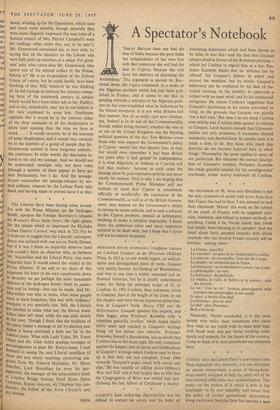reprinting statements which had been shown to be false. It
was this—and the fact that Gasquet always etred in favour of the Romanist position— which led Coulton to regard him as a liar. Pro- fessor Knowles thinks that no 'defence can be offered' for Gasquet's failure to admit and correct his mistakes, but he thinks Gasquet's behaviour can be explained by his lack of his- torical training, by his inability to approach a subject with an open mind, and by his intellectual arrogance. He rejects Coulton's suggestion that Gasquet's persistence in his errors amounted to lying, on the grounds that Gasquet was plainly 'not a bad man.' But then I do not think Coulton ever said he was. Coulton often quoted, in relation to Gasquet, Lord Acton's remark that Ultramon- tanism not only promotes, it inculcates distinct mendacity and deceitfulness. In certain cases it is made a duty to lie. But those who teach this doctrine do not become habitual liars in other things.' Presumably the same applies to some of our politicians. But whatever the correct descrip- tion of Gasquet's conduct, Professor Knowles has made graceful amends for his co-religionists' previously rather scurvy treatment of Coulton.


































 Previous page
Previous page